from 0 review
18 days 17 nights
Daily Tour
Unlimited
___
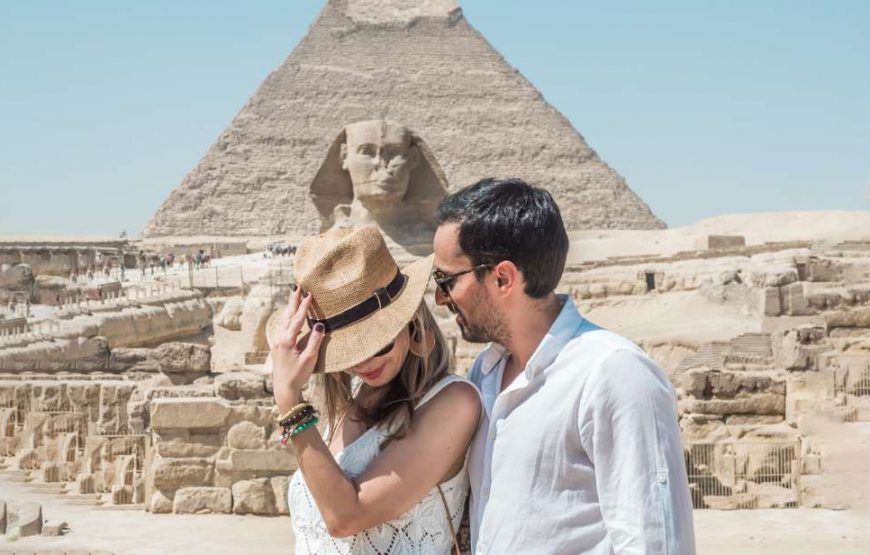
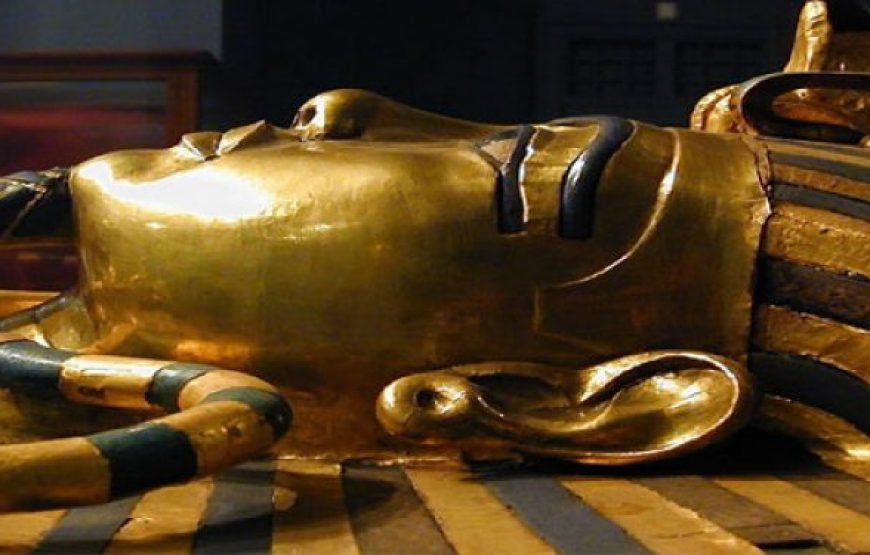
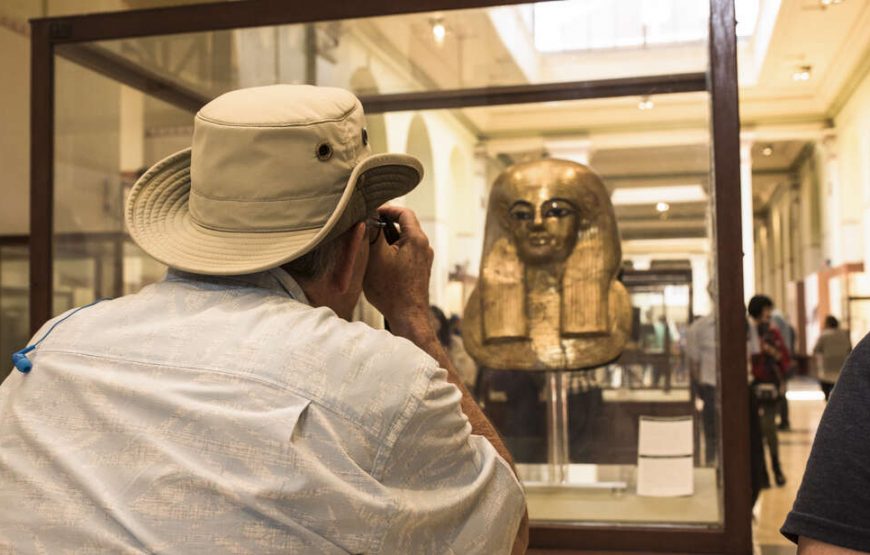
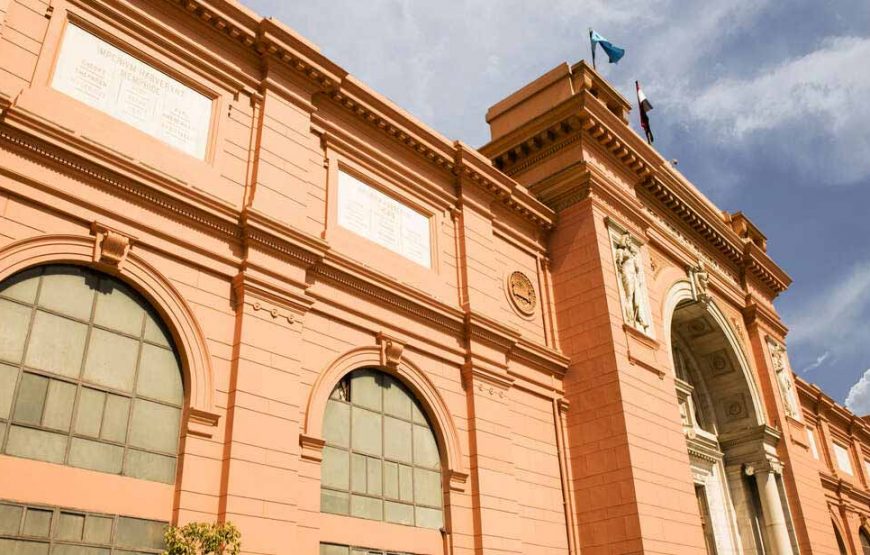
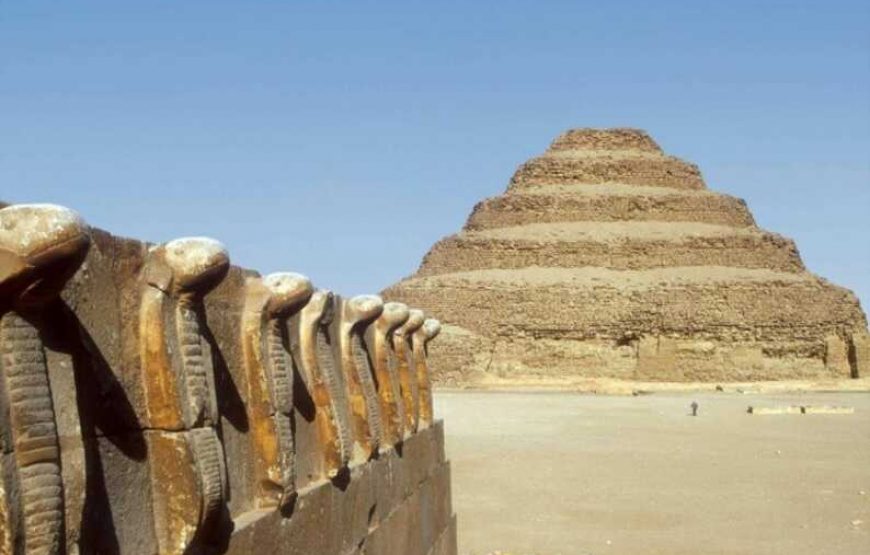
Ancient Egypt, land of the pharaohs, colossal statues, vast pyramids and magnificent many-columned temples. Travel the full length of the Nile Valley to visit both the highlights of ancient Egypt, and some of the rarely-visited sites. Visit iconic sites such as the Great Pyramid at Giza, the Valley of the Kings, and Karnak Temple, but also archaeological sites off the beaten track, such as Tell el-Amarna, the remains of an ancient city built by the ‘heretic’ pharaoh Akhenaten, whose fascinating changes to art and religion still provoke debate.
We cover 3000 years of ancient Egyptian history, from the pyramids of Egypt’s Old Kingdom, through to the Roman-era temple of Philae, ‘Jewel of the Nile’. This tour offers a varied and comprehensive exploration of the pyramids, rock-cut tombs, temples and towns of ancient Egypt, examining an ancient civilization not just of pharaohs but also of ordinary people.
Our knowledge of ancient Egypt is often focused on mummies, mysterious tombs, intriguing funerary rituals and beliefs in the afterlife, and there will be plenty of these on our tour, but we also be visiting non-royal tombs to experience daily life in ancient Egypt through scenes painted on the walls. The detail and colour preservation in tombs at Beni Hasan, Luxor and Aswan are extraordinary, but not often seen. Nor do many visitors to Egypt get to explore the archaeology of ancient settlements, but we will do this at the sites of Deir el-Medina, and Tell el-Amarna.
Join us for a journey through Egypt’s colourful and vibrant history and landscape.

Welcome to Egypt,
Upon arrival at Cairo Airport you will be met by our
Cairo office representative and transferred to your Luxurious Hotel in Cairo to check in the hotel.(D)
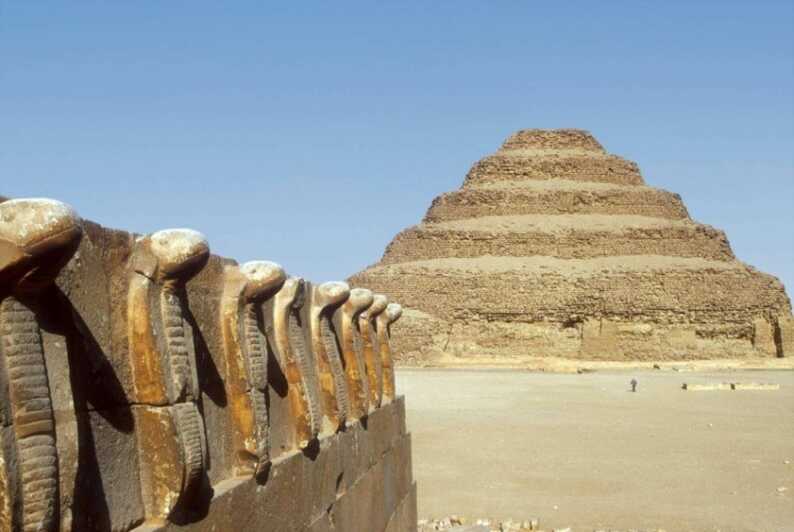
Depart by coach this morning for Saqqara to see the Step Pyramid of 3rd dynasty pharaoh, Djoser, which is also the oldest monument we visit from the Old Kingdom. We visit the Museum of Imhotep and go inside the pyramids of the great kings Unas and Teti to see the pyramid texts. After lunch, we visit the mastaba tomb of Mereruka or the powerful vizier Kagemni, and the New Kingdom tombs of Maya, Tutankhamun’s treasurer, and his general, Horemheb. We also see the recently opened tomb of Maia, Tutankhamun’s wet nurse, and the Apis bull burials in the Serapeum that have re-opened after decades of being closed. Tonight, we enjoy a welcome dinner in the Khan al-Khalili restaurant. Overnight Cairo (B, L, D
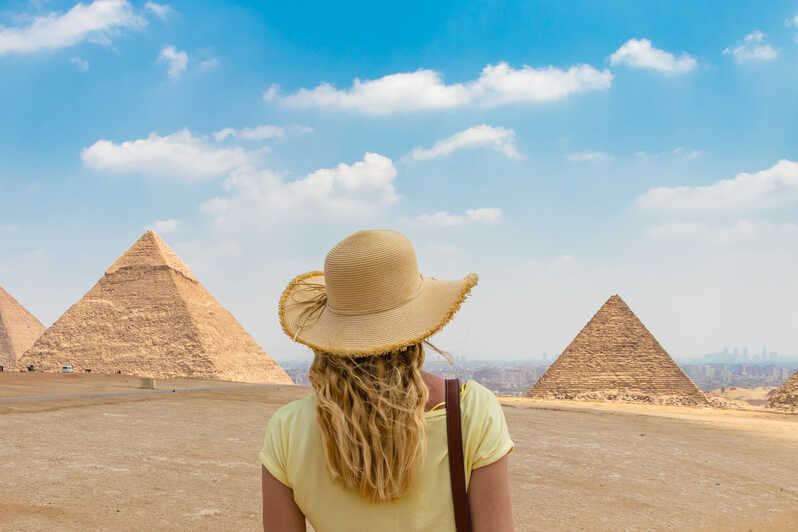
Today we trace the evolution of royal burials from stepped to smooth sided pyramids with a visit to the Red and Bent Pyramids at Dahshur. Both built by the pharaoh Sneferu, the Bent Pyramid was the first, unsuccessful attempt at a smooth-sided pyramid. Determined to build an appropriate resting place, Sneferu succeeded in building his pride and glory with the Red Pyramid and it is possible to go inside. After lunch in Giza we explore the plateau’s iconic monuments of the 4th dynasty, the Sphinx, Great Pyramid of Khufu, son of Sneferu and the Solar Boat Museum. Lucia will give a talk in the hotel this evening. Overnight Cairo (B, L)
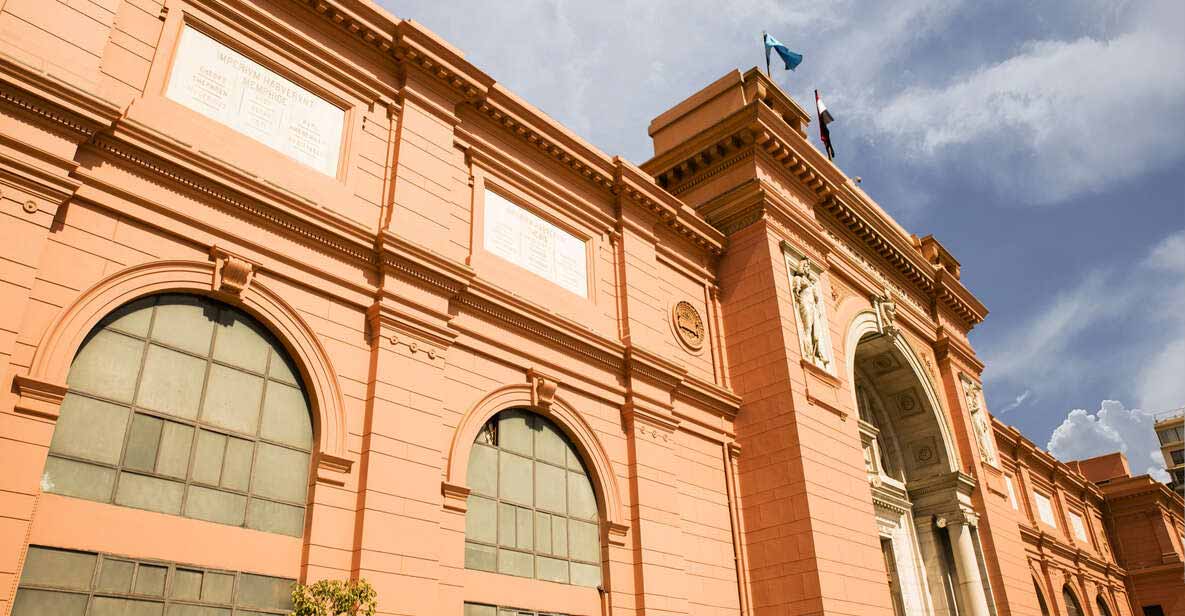
This morning we visit the Egyptian Museum, Cairo’s vast treasure trove of antiquities from all periods of Egyptian history including the wondrous finds from Tutankhamun’s tomb. In the afternoon, we visit the Coptic Museum which houses the world’s largest and most important collection of Coptic art and artefacts. We also visit the Mosque of Ibn Tulun, Egypt’s oldest with its unique Andalusian influenced minaret, and the adjacent Gayer-Andersen Museum noted for its various rooms decorated in a variety of oriental and Arab styles. Overnight Cairo (B)

We depart Cairo by coach for the four-hour trip to Minya, an area still off the radar for most travellers. After a picnic lunch, we explore the exquisitely painted tombs of the Middle Kingdom Provincial Governors or Nomarchs at Bani Hasan. The tombs are reached by a long flight of stone steps up the hill affording a bonus panoramic view of the Nile Valley. Lucia will give a talk this evening followed by dinner in the hotel. Overnight Minya (B, PL, D)
Today we visit the City of Akhetaten at Amarna, established by the heretic pharaoh Akhenaten under his vision for a society dedicated to the cult of one god. Although the city had only a brief existence it has been carefully excavated and provides an unusually accurate picture, because Akhenaten chose a completely new site to construct his city. Our full day visit allows us to completely explore the city and its suburbs, including the Temple of Aten, the ‘Palace of Nefertiti’, and tombs decorated in the ‘Amarna-style’ of art. Lucia will give a talk this evening followed by dinner in the hotel. Overnight Minya (B, L, D)
We depart for Abydos, stopping at Tuna el-Gebel, a necropolis with tombs dating mostly to the Greco-Roman Period. Here we visit Akhenaten’s rock cut boundary stela, the catacombs which stored sacred mummies of baboons, ibises and falcons, and the unique temple-tomb of Petosiris, a high priest. After lunch at the rest house we continue to Abydos. Overnight Abydos (B, L, D)
Our focus this morning is the spectacular Temple of Seti I, one of the most complete and beautifully decorated temples in Egypt. Dedicated to Osiris, a major feature is a long list of cartouches known as the Abydos Kings List. Carved into the temple wall, it contains the names of 76 kings of Egypt acknowledged by Seti as legitimate pharaohs. Continuing to Dendera we visit the Temple of Hathor, who is seen as the patroness of love and fertility. The temple is visually stunning with a grand entrance, detailed carvings and hieroglyphs. Recent cleaning has revealed the vibrant and detailed astronomical painted reliefs on the ceiling. Arriving in Luxor, we check in and enjoy dinner in a local restaurant. Overnight Luxor (B, PL, D)
Crossing by boat to the West Bank our first stop is the Colossi of Memnon. These two eighteen-metre-high stone statues represent the Pharaoh Amonhotep III and once guarded his
memorial temple. We continue into the Valley of the Kings and explore some of the 63 known tombs built for the pharaohs and nobles of the New Kingdom. The largest tomb in the Valley of the Queens is that of Queen Nefertari, favourite wife of Rameses II, usually closed to visitors; we have special access to see the high quality vibrant decorations adorning every surface. Following lunch, we visit the house where Howard Carter lived during his search for Tutankhamun’s tomb. It has been restored and decorated with pictures and tools from the excavation. Returning to the East Bank by coach and boat, the evening is at leisure. Overnight Luxor. (B, L)
Returning across the Nile we visit Deir el-Medina, the village for the workers who constructed the tombs in the Valley of the Kings. From lunch, we travel to Deir el-Bahri and the imposing Memorial Temple of Hatshepsut. Set in a natural amphitheatre and built on three levels, the temple seems to emerge from the surrounding rock. There was a garden of exotic incense trees in the first courtyard brought back from the Queen’s trading expeditions to Punt, perhaps modern day Somalia. Lucia will give a talk this evening following our return to the East Bank. Overnight Luxor. (B, L)
This morning we head to Medinet Habu and the well-preserved Memorial Temple of Rameses III. The temple, apart from its sheer size and architectural importance, is covered in reliefs depicting Rameses’s conquests of foreign invaders from Libya, Crete and elsewhere. We also visit the Ramesseum, built over 30 years, with its fallen colossus of Rameses II. After lunch, we finish the afternoon with a visit to the Tombs of the Nobles where we see three interesting tombs of high ranking 18th Dynasty officials. Lucia will give a talk in the hotel this evening. Overnight Luxor. (B, L)
This morning we visit the vast open-air museum of Karnak, the cult temple of Amun-Ra, chief of the deities of the New Kingdom and the largest religious site in the ancient world. The temple is unusual for its longevity, having been continuously used for a period of some 2000 years. Just before lunch we board our cruise boat, our base for the next four days. In the afternoon, we visit the delightful Luxor Museum, which houses a wonderful collection dating from the Old Kingdom to the Mamluk period including a famous statue of Thutmose III. Dinner this evening is on board our cruise boat. Overnight Nile cruise. (B. L.D)
Our touring in Luxor concludes at the New Kingdom Temple of Luxor; commenced by Amenhotep III, it is dedicated to Amun-Ra and the cult of divine kingship. There is a shrine to Alexander the Great at the rear and remnants of a Coptic Church and a well-preserved mosque, demonstrating the temple has been in almost continuous use up until the present day. Returning to our ship for lunch, we cast off from the banks and cruise down the Nile for the remainder of the day. Overnight Nile cruise. (B, L, D)
This morning we go ashore to visit the Temple of Horus at Edfu. The Temple is very dramatic and quite extensive, with many reliefs and hidden ambulatory. It is dedicated to Horus and was built in Greco-Roman times. After lunch, we cruise to Kom Ombo to see the double temples of the crocodile headed god, Sobek, associated with Upper Egypt, and Horus the Elder, associated with Lower Egypt. We continue sailing to Aswan this afternoon. Overnight Nile cruise. (B, L, D)
Our shore excursion today takes us to the picturesque island of Philae where the exquisite temple of Isis rises magically out of the river. We also visit the Aswan High Dam and the Unfinished Obelisk - more than twice the size of any known obelisk. Quarrymen apparently abandoned the obelisk when fractures appeared in its sides. However, the stone, still attached to bedrock, gives important clues to how the Egyptians quarried granite. We return to the boat for lunch, before checking into our Aswan hotel on Elephantine Island. Overnight Nile Cruise (B, L, D)
This morning we travel by boat to Qubbet el-Hawa a large dune on the cliffs opposite Aswan close to Kitchener’s Island. Here, we visit the Old and Middle Kingdom Tombs of the Nobles where six decorated tombs of governors and other dignitaries are open to the public. Back on Elephantine Island we visit temple sites including the Temple of Khnum. After lunch we visit the fascinating Nubian Museum to learn about the civilisation, history and culture of the Nubian people from Prehistoric times to the present. Lucia will give a final talk in the hotel this evening. Overnight Aswan (B, L)
Today we fly to Abu Simbel, south of Aswan. Pharaoh Ramses
II had two temples carved out of solid rock here and built so precisely that twice every year the first rays of the morning sun
Images right: statue of Rameses II at the entrance to the Luxor Temple; the beautiful setting of the Temple of Isis, on the river at Philae; and a wall painting in the Temple of a Noble, Aswan, Egypt
shine down the entire length of the temple-cave to illuminate the back wall and three of the four gods seated there. The colossi of the king, wearing the characteristic ‘nemes’ head cloth and double crown (of Upper and Lower Egypt), are each 20 metres high, while the facade is more than 35 metres wide and 30 metres high. After lunch, we return to the airport and fly on to Cairo for our farewell dinner this evening. Overnight Cairo. (B, L, D)
The tour concludes after breakfast.
Leave a Reply